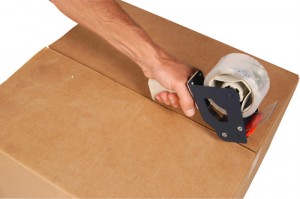Many questions need to be answered before you can choose the best moving company for yourself:
 What type and quantity of boxes will be needed? Will the moving company provide the boxes, and how much do they cost? Depending on the number of boxes and tape you need to buy, it might be less expensive to buy the boxes yourself, but if the boxes are not sturdy, your savings could be cancelled out if anything falls out of a ripped or open box that you packed.
What type and quantity of boxes will be needed? Will the moving company provide the boxes, and how much do they cost? Depending on the number of boxes and tape you need to buy, it might be less expensive to buy the boxes yourself, but if the boxes are not sturdy, your savings could be cancelled out if anything falls out of a ripped or open box that you packed.
How does the moving company charge, by weight, hours or distance, or all three? Most moving companies calculate based on weight of your items. They weigh the empty truck, then load it with your goods and subtract the difference, which will be your cost. There are some movers who charge by the amount of space your boxes take up, instead of weight.
The Cost Of Hiring Movers
Do the movers provide insurance against damaged or lost items? If so, read the fine print to find out exactly what the insurance covers, to be sure you have adequate coverage. Before you pack, list the monetary value of any and all items you would need to replace if they become damaged or are lost. If you need to make a claim later, it will help your case if you have photographs and written descriptions of all your valuables, such as antiques, electronic equipment, artwork, etc.
Moving Costs To Think About
Ask your mover to provide you with a written estimate of your total moving costs, including any fees that might not have been previously mentioned. There is an important legal document, called a tariff, that all interstate and long distance moving companies are required to have. The tariff states the prices that the moving company charges. You might have to ask for a copy of the mover’s tariff, but by law they have to provide this document, which also contains the mover’s policies, rules and other relevant information. With this information, you will know exactly how much you are being charged per pound for your move. A typical charge might be 50 cents per pound for long distance moves.









